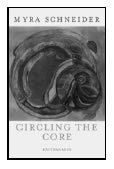How Long Does It Take to Write a Poem?
Every now and again someone at a poetry reading asks me: ‘How long does it take to write a poem?’ My heart sinks because I know I’m being asked for a handle which will open the door to the writing process, a handle I can’t offer.
There is no simple way of explaining creativity – in fact it can’t be totally explained. Moreover, the way in which poets work varies considerably and for that matter the development of every poem is different. Nevertheless, I find it invaluable to examine and re-examine the process.
Most poets agree they usually go through different stages in producing a poem and that the process is rarely quick. I believe the first stage (what I call the ‘panic’ stage) is crucial and that it’s important not to rush it. This is the time when I’m fumbling with ideas and images, uncertain which might become part of the poem or where the poem might go or even if I have the material for a poem at all. The urge is always to get past this point and onto safe ground but so-called safe ground is dangerous as far as a poem’s concerned. If the shape is forced before it emerges, if the poem is stopped short before one has reached the heart of the matter its impact will be limited or it will fail altogether. It is particularly at this time when everything is fluid (though it can happen at any point) that ideas come when I am not sitting writing, when I am in the bath, walking down the road, putting washing into the machine etc. Sometimes in bed at night I even have a sense of the poem inside my body. At other times I come back to my notes with no sense of having had the poem in my mind and yet it must have been incubating because as I start I see just how to move forward although I’d been foxed the previous day.
If the material fails to convince me after several sessions I put it aside but if direction and form begin to emerge a point will come when the notes merge into drafting. Whether there are ten drafts or over a hundred I carry on until the poem feels settled. If my early jottings suggest strict form I find the development and drafting process are much more closely woven together. It is worth looking at the fascinating notes and drafts for Elizabeth Bishop’s villanelle, One Art, reproduced from her notebook and published in Edgar Allan Poe & The Juke-Box (Farrar, Straus and Giroux). After feedback and/or a time lapse I’m likely to do more revision but I might still abandon the poem if I cease to believe in it. Sometimes I pick up abandoned poems and re-write them later or they feed into new poems.
C.K. Williams said that his poem, The Hearth (in The Singing), took twenty-five years to complete. I’d like to illustrate with a poem of mine how long and drawn out the process can be. In the 1980s I wanted to write a long poem about the life of my mother-in-law, Paula Schneider, and the effect on her of two world wars. Rather an inexperienced poet then, I was daunted by the events and complexities of her life. Eventually I wrote three short poems which focussed on distinct parts of her life. The original idea slipped to the back my mind.
In 2007 I made notes for a sequence of poems about our larder. Each was to begin with the larder and an item in it which would take me elsewhere. One of these was a pottery bowl made by Paula. As I started to develop my first ideas I felt, using the bowl as a frame, I could now write a poem about her life. However, the development of the poem was extraordinarily difficult because it had to fit in why she didn’t go to art school in 1919, why she left Vienna, that she became a potter, the satisfaction and disappointment this led to. Finding a form for the poem, setting the context at the beginning came quite easily but although I cut down the facts of Paula’s history it was a struggle to fit them in. My main poetry critic told me at once that they stuck out awkwardly, spoiling the poem. I refined them again and again, tried to convince myself they were integrated but I knew deep down that the criticism, which continued, was correct.
It was only when another friend tentatively suggested there should be more of the bowl in the poem that the impasse was resolved. The point she made seems obvious now – the bowl was ‘lost’ in the middle of the poem. I remember the sense of lightening I felt as I set to work again to make the bowl help carry the whole of Paula’s history. Within two days the poem was finally ‘found’. ‘I knew it was going to work,’ said my main critic, ‘as soon as I read: “The bowl goes deep but not deep enough to hold everything / she lost.” ’
How long did it take me to write that poem? I can’t measure it.


Page(s) 52-53
magazine list
- Features

- zines

- 10th Muse
- 14
- Acumen
- Agenda
- Ambit
- Angel Exhaust
- ARTEMISpoetry

- Atlas
- Blithe Spirit
- Borderlines
- Brando's hat
- Brittle Star

- Candelabrum
- Cannon's Mouth, The
- Chroma
- Coffee House, The
- Dream Catcher
- Equinox
- Erbacce
- Fabric
- Fire
- Floating Bear, The
- French Literary Review, The
- Frogmore Papers, The
- Global Tapestry
- Grosseteste Review
- Homeless Diamonds
- Interpreter's House, The
- Iota
- Journal, The
- Lamport Court
- London Magazine, The
- Magma
- Matchbox
- Matter
- Modern Poetry in Translation
- Monkey Kettle
- Moodswing
- Neon Highway
- New Welsh Review
- North, The
- Oasis
- Obsessed with pipework
- Orbis
- Oxford Poetry
- Painted, spoken

- Paper, The
- Pen Pusher Magazine

- Poetry Cornwall
- Poetry London
- Poetry London (1951)
- Poetry Nation
- Poetry Review, The
- Poetry Salzburg Review
- Poetry Scotland
- Poetry Wales
- Private Tutor
- Purple Patch
- Quarto
- Rain Dog
- Reach Poetry
- Review, The
- Rialto, The
- Second Aeon
- Seventh Quarry, The
- Shearsman
- Smiths Knoll
- Smoke
- South
- Staple
- Strange Faeces
- Tabla Book of New Verse, The
- Thumbscrew
- Tolling Elves
- Ugly Tree, The
- Weyfarers
- Wolf, The

- Yellow Crane, The
